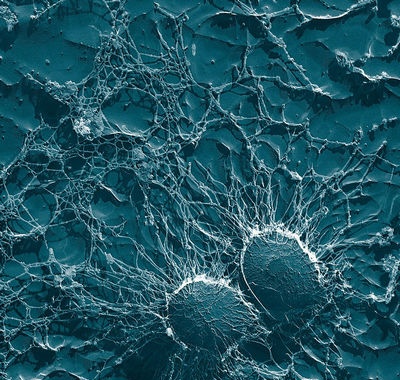|
 Disease is a violation of the normal vital activity of the organism when exposed to damaging environmental factors, leading to a decrease in the adaptability and working capacity of a person. Disease is a violation of the normal vital activity of the organism when exposed to damaging environmental factors, leading to a decrease in the adaptability and working capacity of a person.
The science that studies diseases, their essence, patterns of development and outcomes is called pathology (from the Greek pathos - disease, logos - science).
The disease is accompanied by dysfunction of organs, systems and the body as a whole. Pathological physiology studies these functional disorders. In addition to functional disorders, with the disease, changes in the structure of organs, tissues, cells and subcellular structures often occur, which are studied by pathological anatomy.
Each disease has a specific cause. The doctrine of the causes and conditions for the occurrence of diseases is called etiology (from the Greek. aitia - reason). Pathogenesis (from the Greek pathos - suffering) - the doctrine of the mechanisms of development of the disease. Knowledge of the etiology and pathogenesis of diseases is important for their successful treatment and prevention.
Each disease has characteristic symptoms (signs). These include, for example, pain (its nature, localization), an increase in body temperature, changes in the skin, mucous membranes, blood and urine composition. The set of symptoms characteristic of a particular disease is called a symptom complex, or syndrome.
The causes of disease can be divided into external (exogenous) and internal (endogenous).
External causes of diseases are found in the human environment (for example, microorganisms, low-quality food, unfavorable living and working conditions, traumatic factors).
Infection is the most common external cause of disease. In the human environment, there are many pathogens of infectious diseases (bacteria, viruses, fungi, protozoa, worms, etc.), which cause specific changes in the function and structure of individual organs or the body as a whole. Along with the characteristic signs of infectious diseases, there are general symptoms in the form of general weakness, loss of appetite, fever, headache, etc.
 Eating disorder (malnutrition, starvation, overeating, irregular food intake, etc.) plays an important role in the development of a number of diseases. Among them, the most characteristic are various hypovitaminosis and degeneration. In addition, malnutrition leads to a decrease in the body's resistance to pathogens of infectious diseases. Recently, in many developed countries, due to excess nutrition and inactivity (lack of exercise), a significant part of the population is obese. Obesity negatively affects heart function and contributes to the development of atherosclerosis and some other diseases. Eating disorder (malnutrition, starvation, overeating, irregular food intake, etc.) plays an important role in the development of a number of diseases. Among them, the most characteristic are various hypovitaminosis and degeneration. In addition, malnutrition leads to a decrease in the body's resistance to pathogens of infectious diseases. Recently, in many developed countries, due to excess nutrition and inactivity (lack of exercise), a significant part of the population is obese. Obesity negatively affects heart function and contributes to the development of atherosclerosis and some other diseases.
Violations of the regime of work and rest can contribute to the development of various occupational diseases, diseases of the central nervous system, heart, blood vessels, etc. Lack of physical activity, especially in mental workers, often leads to premature sclerotic changes in blood vessels and disorders of the coronary and cerebral circulation.
Improper organization of work and rest can lead to the emergence of various kinds of neuroses, that is, functional disorders of the nervous system.
Mental traumaarising from conflict situations between members of a team or family can cause various nervous disorders, dysfunctions of the cardiovascular, digestive and other systems of the body. The psyche of patients is especially easily traumatized.Careless conversation of negative content in the presence of a patient about his illness, prescribed treatment, prescribed prescription or medicine can worsen the patient's condition, cause suspicion, distrust and interfere with treatment.
External causes of illness also include physical (injury, contusion) and thermal injury (overheating, heatstroke, sunstroke, burns, hypothermia, frostbite).
Endogenous causes of diseases are associated with the characteristics of the organism itself and lead to the development of hereditary, genetically determined diseases. These include hemophilia, some neuropsychiatric diseases, metabolic diseases, etc. The endogenous causes of the disease include the effect of various disease-causing factors on the fetus. For example, alcoholism parents can cause mental retardation of the child. Bacterial toxins, various toxic chemicals, including medications, can disrupt the normal development of the fetus. Such diseases are congenital and not inherited.
Gayevy M. D. - Pharmacology
Read now
All recipes
|
 Disease is a violation of the normal vital activity of the organism when exposed to damaging environmental factors, leading to a decrease in the adaptability and working capacity of a person.
Disease is a violation of the normal vital activity of the organism when exposed to damaging environmental factors, leading to a decrease in the adaptability and working capacity of a person. Eating disorder (malnutrition, starvation, overeating, irregular food intake, etc.) plays an important role in the development of a number of diseases. Among them, the most characteristic are various hypovitaminosis and degeneration. In addition, malnutrition leads to a decrease in the body's resistance to pathogens of infectious diseases. Recently, in many developed countries, due to excess nutrition and inactivity (lack of exercise), a significant part of the population is obese. Obesity negatively affects heart function and contributes to the development of atherosclerosis and some other diseases.
Eating disorder (malnutrition, starvation, overeating, irregular food intake, etc.) plays an important role in the development of a number of diseases. Among them, the most characteristic are various hypovitaminosis and degeneration. In addition, malnutrition leads to a decrease in the body's resistance to pathogens of infectious diseases. Recently, in many developed countries, due to excess nutrition and inactivity (lack of exercise), a significant part of the population is obese. Obesity negatively affects heart function and contributes to the development of atherosclerosis and some other diseases.







